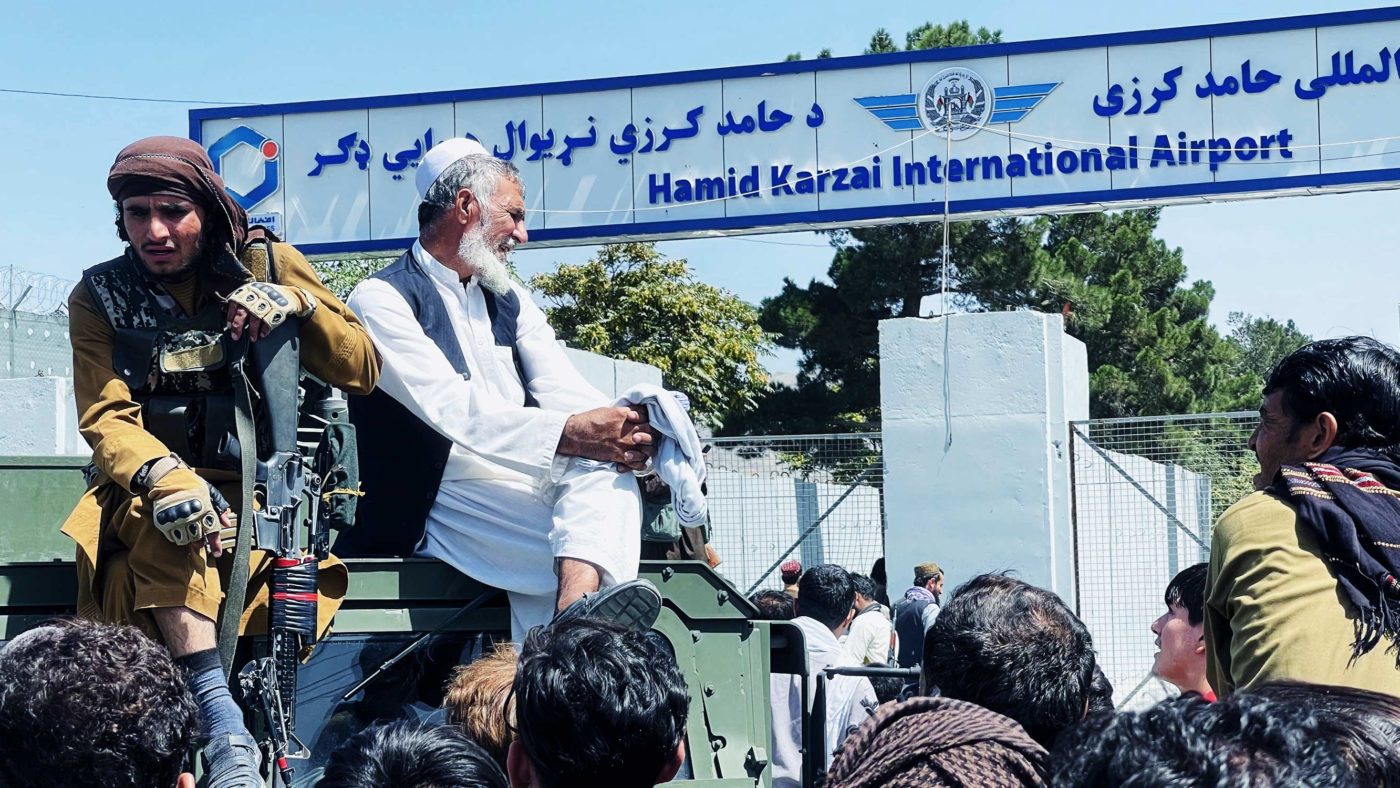The 2004 film Hotel Rwanda demonstrates the best and worst of humanity. It centres on the efforts of hotel manager, Paul Rusesabagina, who saved 1,268 Hutu and Tutsi refugees from the Rwandan genocide. Here was a story of immense personal bravery, unremitting savagery and an international community that failed utterly to protect the vulnerable.
The events of 1994 led to a global reckoning. Less than 50 years after the Holocaust, when the world declared ‘Never Again’, we had looked on impotently in the face of mass murder.
The context may have changed, but it has been difficult not to feel a similar sense of rage at the scenes from Kabul airport over the last week, seeing the terror in the faces of Afghans desperate to escape a murderous Islamo-fascist regime. Here were the translators and security guards who worked for Nato forces and embassies, the journalists and human rights activists, the women who wanted to go to school and the freedom to work, or just to leave home without a male relative.
Make no mistake: the Taliban have not changed. They are already undertaking a door-to-door manhunt for people who worked with Western forces, according to the UN. Despite the smiley face for Western reporters, they will once again be leading a brutal, repressive regime.
This week’s scramble was provoked by the United States’ decision last weekend to rapidly take control of Afghan air space and air traffic control, shut the civilian side of the airport and evacuate their citizens. Those caught up in the maelstrom included teenager Zaki Anwari, who fell to his death after trying to stow away on a US military plane. Anwari was a member of the Afghan national youth football team and preferred to risk his life than let the Taliban snuff out his dream of playing professional football.
The evacuation efforts are ongoing but the Taliban have, unsurprisingly, broken the Doha Agreement commitment to let people leave the country. Parents are handing their children over the wall to US soldiers, while the Taliban whip, beat and shoot those trying to pass through checkpoints near the airport. Maddeningly, in spite of the hordes desperate to get out, we see planes leaving the airport empty. The Taliban have also closed land borders. Now the only way to save foreign citizens and those already provided visas to leave the country may be to deploy more troops to secure the area surrounding the airport.
This scenario was predictable and tragically preventable. The US, along with Nato allies, pulled out forces overnight without any notice to the Afghan military, taking away the military contractors that maintain helicopters, as well as broader air support and intelligence services. The morale in the Afghan military crashed to zero and the will to fight on disappeared. Some commentators will blame the Afghan military, but it was Western nations who were unwilling to leave behind a few thousand troops to prevent the country falling to the Taliban and, once again, becoming a potential safe haven for terrorist networks like Al Qaeda.
The sad reality is that we can no longer save Afghanistan. But we can show moral leadership and help save some of its people.
Above all we need a safe, legal and direct route for all those fleeing the Taliban. These are capable, educated and pro-Western people, who attended schools funded by our money. We effectively created a liberal intelligentsia – we cannot leave them to rot under the Taliban.
The UK must lead the world in developing a plan for a mass global programme to support all those who want to leave. It’s the least we can do, given our cack-handed approach to the issue of Afghan refugees so far. Just last year, the Home Office was rejecting as many as half of Afghan asylum applications. They have long maintained that Kabul is a safe internal relocation alternative, an excuse used as recently as last Friday, just hours before the Taliban rolled through the streets.
So far the Government has announced its intention to create an Afghan citizens’ resettlement scheme. This is a good start but will include just 20,000 people over five years. That is both pathetically slow and far too small to make any real difference. In any case, it is completely the wrong model for asylum seekers fleeing Afghanistan. When the Taliban are at the door, you don’t have time to queue or fill in forms. You need to make your way out of the country immediately.
We are on the cusp of a refugee crisis, with hundreds of thousands of people fleeing. Neighbouring countries will take in the majority of refugees, but many will end up in Europe too. Rather than an uncontrolled, disordered mass of people – like during the Syrian crisis in 2015 – we need to provide assessment camps in third countries and resettle those with a well-founded fear of persecution, as per our duty under the UN Refugee Convention. This could start with fast-track processing of women and children, who practically never present a security threat. And, of course, we owe a duty of care to all those who have put themselves in danger to work with British forces over the last 20 years.
Be in no doubt, what’s happening in Afghanistan is a reckoning for humanity. Let us act decisively now to help everyone we can, not look back in 25 years wondering what might have been.
Click here to subscribe to our daily briefing – the best pieces from CapX and across the web.
CapX depends on the generosity of its readers. If you value what we do, please consider making a donation.


